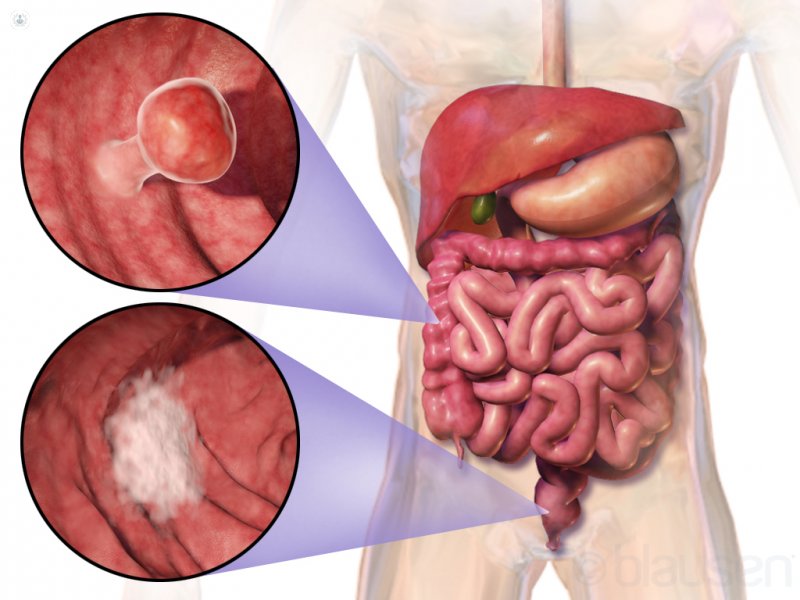Symptoms of colorectal cancer, the most common digestive
Written by:L colorrecta carcinoma is the most common cancer of the digestive system. In Spain, its incidence is between 12 and 23 cases per 100,000, and increasing every year. Globally it ranked third of malignant diseases in men and fourth in women.
In Spain, 9% of deaths from malignant tumors are attributable to colorectal tumors, representing 40% of deaths if we only take into account the tumors of the digestive tract.
Diagnosis of colorectal cancer
The median age of diagnosis of colorectal disease is 71 years in the case of colorectal tumors, and 69 in the rectal.
Between 5% and 10% of tumors are considered hereditary. For this reason it is essential to track and screenig of this population, in addition to carriers polyps larger than 1 cm (for its high risk of malignancy).

Symptoms of colorectal cancer
In 41% of cases the first clinical symptom is the presence of blood in the digestive tract, followed by change in bowel habits (constipation alternating-diarrhea) and abdominal pain.
Between 6% and 25% of tumors debut (first clinical symptom) as complications in the form of occlusion or perforation. These situations are associated with a worse long-term prognosis and a high perioperative morbidity and mortality.
There is no specific tumor markers (CEA, Ca 19.9 ...) allowing diagnose with a simple analysis. However, raising their numbers could denote the existence of a tumor.
To confirm the diagnosis election procedures are CT and, especially, with direct vision colonoscopy and biopsy.
Colorectal Cancer Treatment
In recent years the cytogenetic analysis (K-ras, p53, c-myc ...) can identify patients at high risk of colorectal cancer, and is also very useful in the selection of adjuvant and consequently, improving the long - term results.
Once diagnosed, the treatment of choice is surgery with curative intent.
The surgical technique varies tumor localization. Rectal tumors on numerous occasions require practice abdominoperineal amputation (removal of the anus and colostomy), performed by a specialist in General Surgery .
As reinforcement of surgical treatment, about half of the patients need chemotherapy or radiation (sometimes pre-surgical treatment in the case of rectal tumors).
Currently 60% of patients survive more than 10 years since the treatment , or, if diagnosed early.


